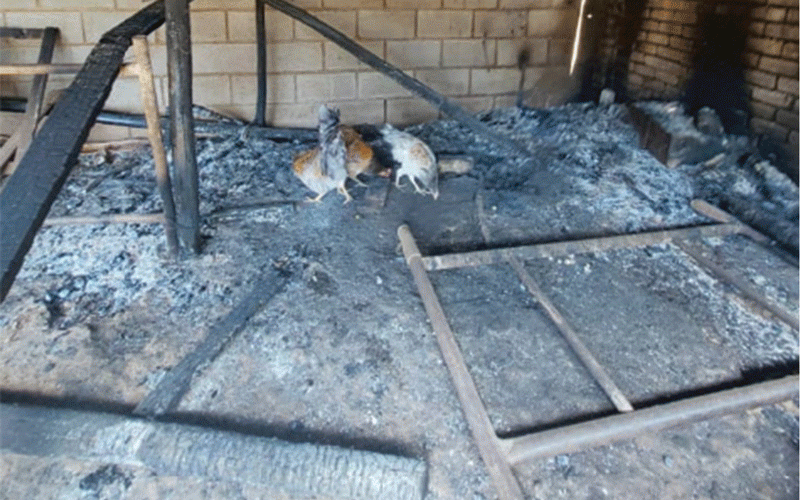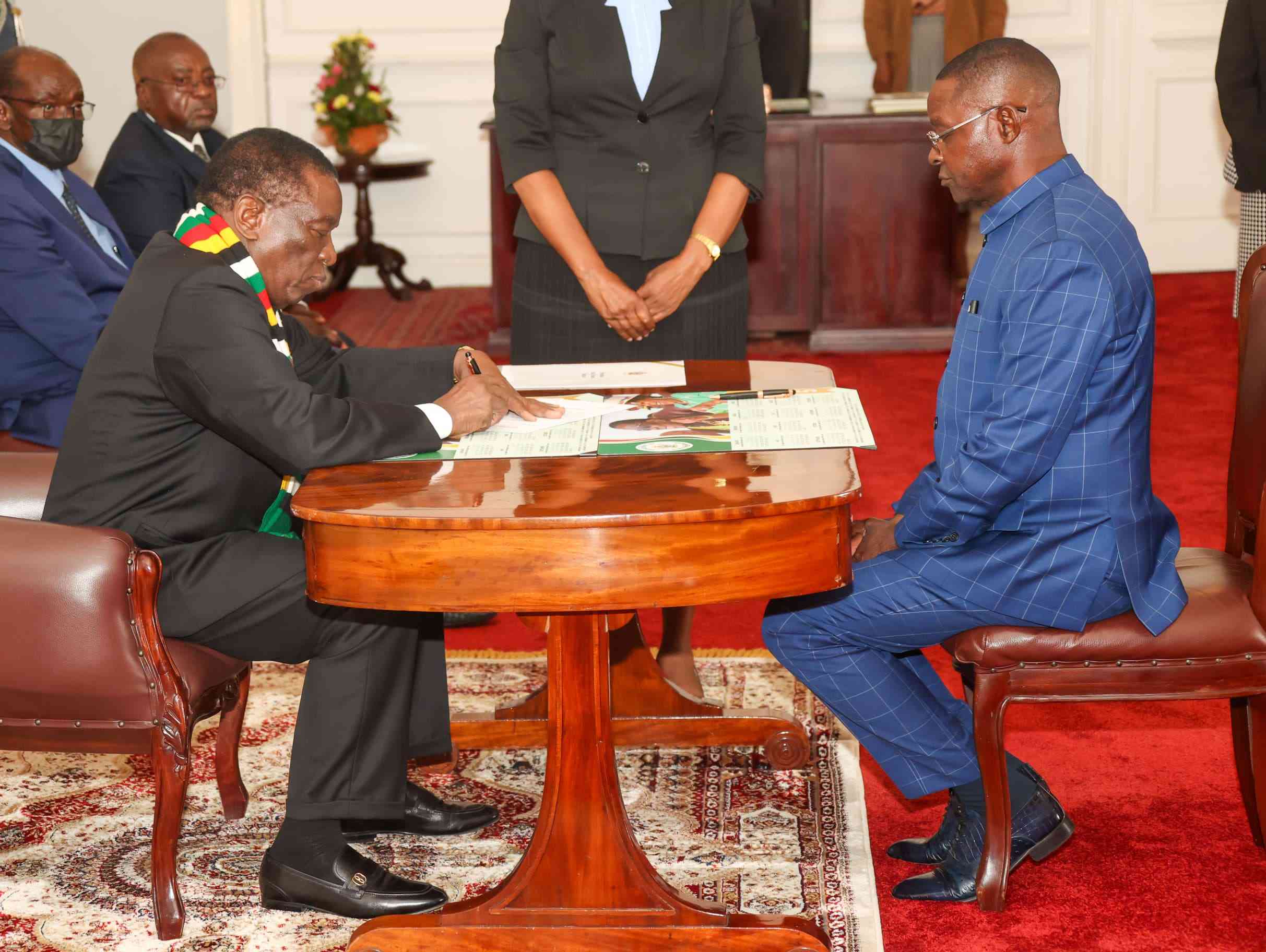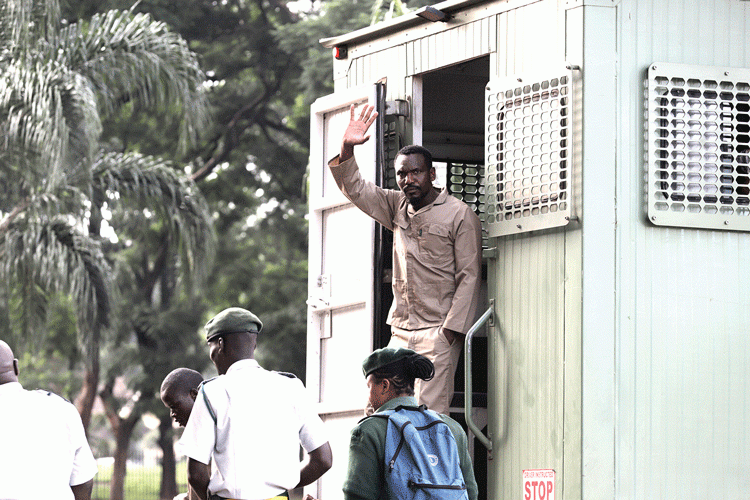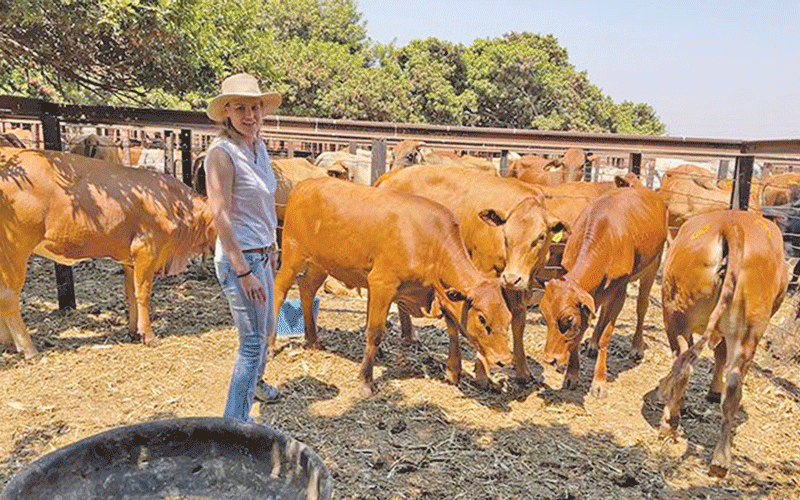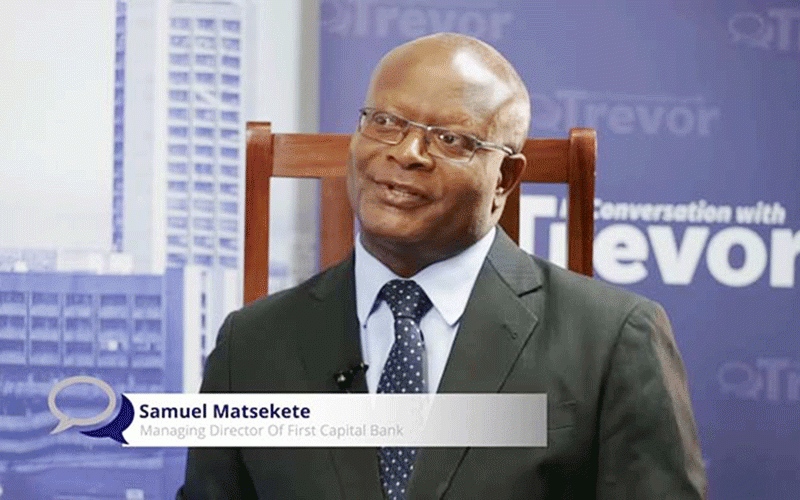OPPOSITION MDC leader Nelson Chamisa has all but dumped foreign-meditated talks with his nemesis, President Emmerson Mnangagwa, preferring a home-grown solution to the current economic and political crises facing the country.
By Richard Muponde /Moses Matenga/Everson Mushava
Former South Africa President Thabo Mbeki was in the country in December to nudge Mnangagwa and Chamisa into an inclusive dialogue and had promised to be back in three weeks, but has not returned to date.
In his keynote address at the launch of the Principles of Reliable Inclusive and Credible Elections in Zimbabwe symposium organised by local think-tank, Sapes Trust in Harare yesterday, Chamisa said the country could not out-source solutions as local leaders had to sit down and find home-grown solutions. “We are there to solve our own problems. We have the answers to our problems. We can’t have South Africa solving our problems, it has its own problems to take care of,” said Chamisa, who had earlier warmed up to Mbeki mediation efforts. “Americans can’t have a solution for this country as it has its own domestic problems to solve. We can’t out-source solutions for this country. I have heard people talking of President Mbeki saying this and that. We should solve our own problems.”
He said Zanu PF had misunderstood his call for peaceful co-existence as a weakness. “That tells you we have a historical attempt to bring a peaceful solution to the problems facing the country. However, they have mistaken our propensity and affinity for peace as a weakness. They think when we call for peace, we don’t have other instruments to put conditions that induce a delivery or birth of a new Zimbabwe,” Chamisa said.
“We do know that on the African continent, citizens have paid dearly in the event of anarchy. In an event that there’s anarchy, we in the alternative have nothing to lose because we don’t have anything. They have buildings, farms and mines. When there is anarchy in this country, they will be the first customers and will pay dearly. We have seen it in Sudan, Somalia and Angola. However, we don’t want that path for this country, but if they continue ignoring our advice, we will be forced to look that way. They might try everything, arrests or what, we don’t care.”
Keep Reading
- Chamisa under fire over US$120K donation
- Mavhunga puts DeMbare into Chibuku quarterfinals
- Pension funds bet on Cabora Bassa oilfields
- Councils defy govt fire tender directive
But MDC youths yesterday said the time was now ripe to fight Mnangagwa’s government for implementing unpopular policies that were causing untold suffering to the people of Zimbabwe.
Addressing a Press conference in Harare, MDC youth spokesperson Stephen Chuma said the economic decay in the country had reached a crescendo and the youths were mobilising Zimbabweans to act against Mnangagwa.
He said Zimbabwe was now an epicentre of a regional crisis.
“Zimbabwe is in a crisis. The level of the roads and economic decay has reached a new crescendo.
The country has virtually become a jail with every citizen in prison,” Chuma said.
“There is no mealie-meal, no justice, no fertiliser for farmers, no fuel and to make it worse, there is no government in this country. We have criminals and machete warlords who are running the affairs of this our beloved country.”
Last week, the MDC youths staged a surprise demonstration in Harare against the deteriorating economic situation in the country and the opposition party has threatened to take the flash protests to rural areas.
“We have seen some kindergarten games and tomfoolery by Emmerson Mnangagwa’s boys, Godfrey Tsenengamu, Lewis Matutu (Zanu PF youths) and (Norton independent MP) Temba Mliswa in a bid to absolve their godfather who stinks to the high heavens of corruption. We have said it before and we are going to repeat it, Mnangagwa is the archbishop or Pope of corruption and syndicates and cartels in this country,” Chuma said.
Tsenengamu and Matutu have been suspended from their posts in the ruling party after they held a Press conference to name and shame businessperson they claimed were driving the cartels sabotaging the economy.
Mliswa told the media on Wednesday to launch a war against what he termed white monopoly capital. Chamisa said there should be a multi-stakeholder platform to discuss the political crisis affecting the country, but not under the Political Actors Dialogue (Polad), comprising fringe political parties which performed dismally in the 2018 elections.
“That’s why I have said Polad is a non-starter as it was an individual-initiated platform and partisan. Alternatively, we should have a multi-stakeholders’ platform, where we sit and discuss to solve the problems in the country,” he said.
The opposition leader also said his party would not respect the delimitation process to be carried out by the Zimbabwe Electoral Commission (Zec) before the electoral body was reformed and became independent.
“We have to resolve the issue of an independent electoral body first. Zec can’t hold a delimitation exercise as it is not independent. We don’t want a gerrymandering exercise disguised as a delimitation exercise, where one demarcates where he knows he has support, leaving where he is unpopular outside,” he said.
“They are running away from a scientific process, they want to do it in darkness on the basis of conjecture. That’s why they want the delimitation to be separated from the census.”
Chamisa recently said he was waiting for Mnangagwa to come forward so that they dialogue to end the debilitating economic crisis which has reduced citizens to paupers.
However, Mnangagwa has declared that he will not engage Chamisa outside the Polad, a platform the opposition leader has dismissed as a Zanu PF “choir”.
Churches under the banner of Zimbabwe Council of Churches and Heads of Christian Denominations have also been struggling to broker talks between Mnangagwa and Chamisa.
In another matter, Chamisa told delegates at the Morgan Tsvangirai memorial lecture on Wednesday that he would continue mobilising for peaceful protests against Mnangagwa’s government despite the State’s brutal clampdown on past demonstrations.
“We are the best because we learnt from the best. Morgan Tsvangirai taught us that we must use peace to confront guns and violence. This is the year of action. They will try to shoot us and whenever you see anyone using guns, you must know that they are cowards,” he said.
Academic Ibbo Mandaza, who was the guest speaker at the event, said the situation obtaining in the country currently was ripe for a national transitional authority to have stakeholders collectively address the challenges bedevilling the country.
Mandaza also said the late former President Robert Mugabe lost to the late MDC founder and leader Morgan Tsvangirai in 2002 and 2008, but there was conspiracy from the continent and the region to have him stay, adding some leaders did not want the firebrand former trade unionist to win.
“Now we know as political economists that the national transitional authority is usually an outcome of a peace treaty. The conditions for a national transitional authority are better than ever before because clearly, Morgan Tsvangirai, if he was still around, he would have told us that this is the ripest moment for the opposition to put their cards on the table,” he said.
“We need to move away from what I call the obliging and compliant opposition. Since the GNU [Government of National Unity] and its ramifications, the MDC has become a compliant and obliging opposition.”

